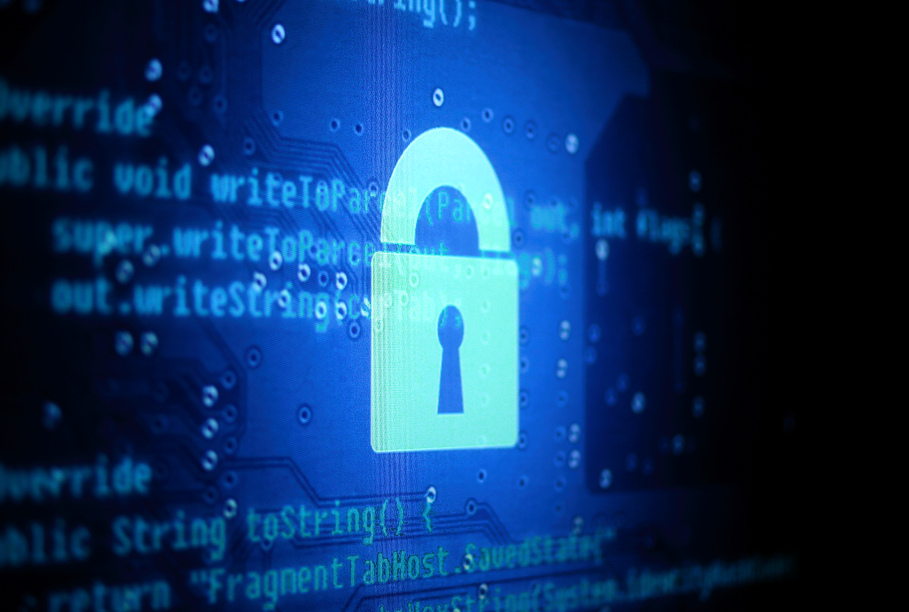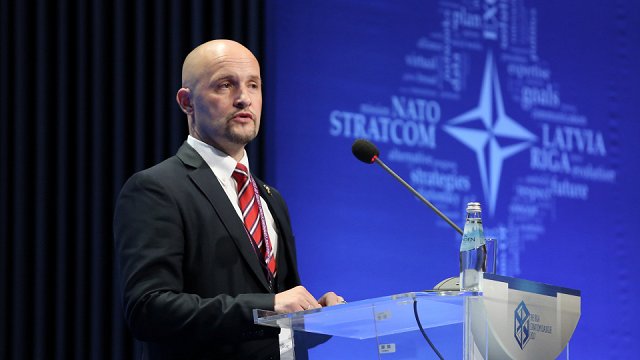Anke Schmidt-Felzmann, University of Glasgow:
"The hijacking of public debate affects trust in the government. It affects trust in state institutions and it affects trust in state policies. It reinforces skepticism against other actors that are important for Latvia.
"The Latvian security strategy places an emphasis on cooperation with the United States so the ways in which the US is portrayed in the public sphere is important. The ways in which what is happening in Ukraine is portrayed, the ways in which the European Union is being portrayed is relevant for the trust in what the government does and government policy.
"There is such a large volume pumped into cyberspace at such a fast pace and users of cyberspace are very eclectic, so it is difficult to know exactly how the flow that is launched by different actors is affecting the general population, how that is affecting views in Latvian society.
"Is Latvian society right now actually resilient and resistant against external influence? Are there perhaps different parts of society that we need to know more about and that need to be monitored in terms of how different flows of information affect them?"
Jānis Kārkliņš, director of NATO Strategic Communications Center of Excellence:
"There is no distance between two points in cyberspace - that represents a completely different environment that we need to grasp. In twenty years we have developed total dependence on this environment and in my view this technology has changed human nature. By disrupting cyberspace in a considerable way we are disrupting our ability to function.
"This is a considerable threat to security: if you think in these terms we are totally dependent upon technology. If you disrupt this environment we are totally disoriented as individuals and as a society.
"Cyberspace twenty years ago was different to today's cyberspace. Nine years ago there was no Twitter. Today Facebook is the second largest community in the world after China if you are talking in terms of population.
"When we are thinking about abuse we also need to distinguish and understand what sort of abuse we are talking about... propaganda's not new, it's hundreds of years old. What is new is the scale and the speed. With one click of the mouse you can potentially reach 3 billion.
"We need to invest in strategic communications better... bans of anything these days simply do not work.... in my view [the 3 month Latvian ban on certain Russian TV channels] was simply 3 months free advertising for the channel that was banned."
Ilze Murāne, Latvian Central Bank:
"The good news is that usually the main [central banking] systems are not directly connected to the internet and are not affected by regular hackers who just try to do bad things for fun.
"What should we do when no electronic payment systems are available? Fortunately we still have cash, and the question here is: should the state recommend to citizens to keep some cash at home for emegency situations? Should we have an emergency regulation so that if something is wrong with the electronic payment system we could buy our basic products for cash without cash registers or payment cards available?"
Mikus Arājs, cybersecurity expert:
"I want to look at how we can build a Latvian security capability for cyberspace. When we look at a crisis we see three phases: a phase of anticipation, a phase of crisis management and then a response phase.
"We won't be able to defend ourselves if we won't have research and education for our people here [in Latvia]. If we refuse to educate our cyber professionals, if we educate them in Estonia or Sweden, they will stay there."
"Latvia has done things that other countries are afraid to do. We made a National Guard unit for cyber crisis - that is quite a brave and right move.
"How do we respond to that structure, person or organization which attacked us? There are several options. One option is to shame them. At first it sounds funny but look what Mr Snowden did with the NSA - the organization was made toxic... actually we can give quite good deterrence with shaming if we incorporate it into our strategy."
The whole discussion, including additional participants can be viewed online at the YouTube channel of the Latvian Armed Forces:
































